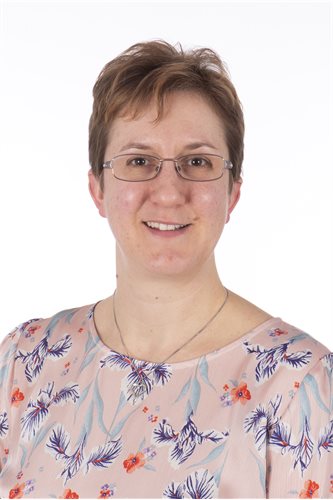
Dr Lianne Geddes joined the Graduate Entry Medicine programme (GEP) at St George’s in 2003, when the university was recruiting its fourth cohort of students. Now an Emergency Medicine Consultant at Frimley Park Hospital, Dr Geddes plays a central role in supporting staff well-being and a positive work-life balance, helping drive forward plans for a wellbeing room for A & E staff earlier this year. She spoke to us about her path into Medicine and what has helped her team manage the challenges of the last two years of the Covid-19 pandemic.
When Dr Geddes applied for a place at St George’s, it was one of only a few Universities offering the Graduate Entry Medicine programme. She explains that she chose St George’s due to its strong reputation for teaching and adds, “By then, GEP was more established at the university, and I liked the location - it was closer to home for me and had more of a community feel than other, bigger universities because of its size and its location in South London.”
Dr Geddes had always enjoyed science, but had not considered Medicine as a career option until it came up in conversation with her Chemistry teacher during A-levels. She says, “This was a turning point for me, because it was an idea that then took root and didn’t go away. My first degree in Physiology at the University of Leicester gave me the time to think about this further and really cemented my decision to study Graduate Entry Medicine.”
Now an Emergency Medicine Consultant at Frimley Park Hospital, where she has worked since February 2019, Dr Geddes says of her role, “Working in Emergency Medicine, there is less of a divide between roles within the team and everyone will provide support wherever it is needed at the time, so the work can be very varied.”
Dr Geddes, who also supervises Junior Doctors as part of her role, adds: “I have really enjoyed having that opportunity to see some of the new doctors coming through and watching their knowledge of the role develop. Being able to celebrate the small milestones with them, like when they learn a new skill for the first time, makes all the difference.”
Dr Geddes is very involved in supporting staff well-being at the hospital, taking the lead on several activities to help promote a positive work-life balance. She is also a page admin for Tea and Empathy, a national, informal, peer-to-peer support network which aims to foster a compassionate and supportive atmosphere throughout the NHS. Before the Covid-19 pandemic, Dr Geddes had begun asking for a space in the hospital that could be used by our A&E staff, who needed a quiet place to go within the emergency department that gave them some distance from their work.
Reflecting on the impact of the Covid-19 pandemic on staff at the hospital, she explains, “I have always had an interest in supporting well-being and a healthy work-life balance. But this became even more of a priority at a time when we were all handling so many changes in a very short space of time, all while trying to juggle a heavy workload with meeting our patients’ needs.
“Staff were exhausted, and it became even more apparent that we needed better rest areas. With some fantastic support from our Chief Executive and Frimley Health Charity, we were able to make this possible and opened a much-needed wellbeing room in April last year to coincide with well-being week.”
Speaking about the impact of the room since it opened, Dr Geddes says, “It has been wonderful to see this room being used by staff all the time, and well-being support at the hospital has gone from strength to strength over the last few months. We now have a member of staff dedicated to staff well-being. As well as the wellbeing room we recently opened, there are now plans to create an outdoor space for staff to take a break during the day.
“We also try to do small things that will have a real impact on staff morale, like holding bake-offs for staff to get involved in, or delivering smoothies to staff one morning each week. It is great to see how many staff are keen to get involved and support these initiatives, which make a big difference to staff communications and create a sense of community.”
Reflecting on the skills she developed during her time at St George’s and how they have helped prepare her for a career in Emergency Medicine, Dr Geddes says, “Being empathic is so important in a role in which you unfortunately have to be prepared to deliver bad news to patients and their families. One thing which has really stood me in good stead over the course of my career is the work we did to develop our communication skills. GEP at St George’s helped prepare you for handling difficult conversations with patients, and even now I find that I am very analytical about interactions at work, thinking about what I can learn from conversations to adapt my approach.”
Sharing advice with current GEP students, Dr Geddes says, “Find out what interests you and find out what you need to do to get there. Training can take up a lot of your time and energy, and it is so important to pursue something you feel passionate about. Once you find what this is, all of the hard work is so worthwhile.”